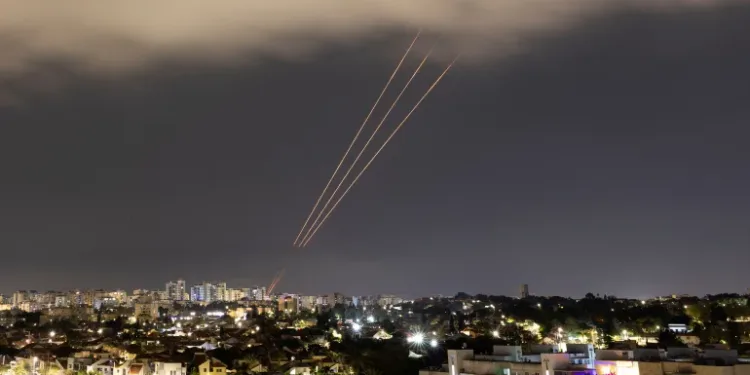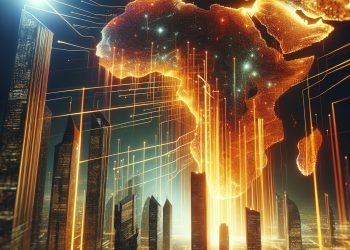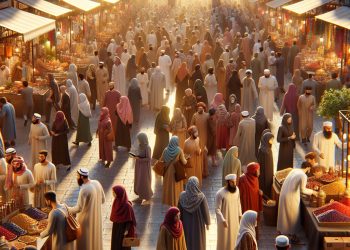Following the weekend airstrikes on Israel, there are concerns regarding the imminent reprisal attack on Iran.
Recall that some days ago, Iran launched a military attack on Israel, blaming the Israel Defense Forces (IDF) for destroying their embassy in Damascus, the capital of Syria, recently.
On Sunday, Hossein Amirabdollahian, the Iranian Foreign Minister, reiterated that Tehran’s leadership is prepared for any potential actions from Israel.
- Exercising the right of legitimate defense demonstrates Iran’s responsible approach to regional and international peace and security.
- “At this point, the Islamic Republic of Iran has no intention of continuing defensive operations, but if necessary, it will not hesitate to protect its legitimate interests against any new aggression,” Amirabdollahian said in a statement published on the Iran Foreign Affairs website.
Benjamin Netanyahu, the Prime Minister of Israel, stated that his government has been making preparations for a potential conflict with Iran in response to the recent attack.
READ MORE: X Risks Fines As Elon Musk Insists On Violating Court Order
“In recent years, and especially in recent weeks, Israel has been preparing for a direct attack by Iran.
“Our defensive systems are deployed. We are ready for any scenario, both defensively and offensively. The State of Israel is strong. The IDF is strong. The public is strong,” he said in a televised address last night.
What Russia Is Saying About The Iran-Israel Conflict
Russia’s Foreign Ministry released a statement on Sunday denouncing the attack on Iran’s diplomatic office.
The ministry also faulted the United Nations’ weak stance on Tehran.
It stated;
“In the early hours of April 14, a large number of missiles and drones were launched at the territory of Israel. According to the Iranian Foreign Ministry, this attack was undertaken as part of the right to self-defence stipulated in Article 51 of the UN Charter in response to the attacks on Iranian targets in the region, including the strike on the consular section of the Iranian Embassy in Damascus on April 1, which our country strongly denounced.
“Unfortunately, due to the position adopted by its Western members, the Security Council was unable to provide a proper response to the strike on the Iranian consular mission.”
The ministry expressed Russia’s “extreme concern” at the dangerous escalation in the region, warning that the numerous unresolved crises in the Middle East, “which are often fueled by irresponsible provocative actions,” will exacerbate tensions.
What China Is Saying
Like Russia, China expressed concern at the developments but called on influential countries to stabilize the tension and the region.
It described the conflict as a fallout of Israel’s war with Hamas in Palestine.
China stated;
“China expresses deep concern over the current escalation and calls on relevant parties to exercise calm and restraint to prevent further escalations. The ongoing situation is the latest spillover of the Gaza conflict. There should be no more delays in implementing UN Security Council Resolution 2728 and the conflict must end now.
“China calls on the international community, especially countries with influence, to play a constructive role for the peace and stability of the region.”
What Isreal-Iran Conflict Means For African Economy
As the international community anxiously monitors the situation, potential economic repercussions loom large. These effects could particularly impact Sub-Saharan African nations, such as Nigeria, which is currently grappling with significant economic hurdles.
Oil Prices and Energy Markets: The Middle East is a major hub for oil production and trade contributing around 33% of global crude oil production.
Any prolonged conflict in the region can lead to volatility in global oil prices due to concerns over supply disruptions, even if Israel and the Iran territories are not major oil producers themselves.
Take Nigeria for instance, it is a major oil-producing country and it could experience fluctuations in its oil revenues. If the conflict escalates to involve other Middle Eastern nations or causes disruptions in major shipping routes, there could be a significant impact on global oil prices.
Effect on the Exchange Rate: As previously mentioned, the Middle East is crucial for global oil dynamics. An escalation in conflict can potentially impact oil prices.
If oil prices rise and Africa’s oil exports benefit, there could be an influx of foreign currency, potentially bolstering Africa’s foreign exchange reserves. However, if for some reason oil exports are hindered or if the conflict causes a decrease in global demand, then Africa could see a depletion in its reserves.
A country’s foreign exchange reserves are directly linked to its currency’s strength. A depletion of these reserves can result in the depreciation of the local currency, the Nigerian naira, against major currencies like the US dollar.
Geopolitical uncertainties can influence investor sentiment as if global investors perceive heightened risks in emerging markets due to the Israeli-Iran conflict or its potential spillover effects, there could be a decline in capital importation in Africa.
Trade Relations: Nigeria, like many countries, maintains trade relations with Israel. While their trade volume isn’t massive, any prolonged conflict could disrupt trade ties or the ease of doing business between the two nations.
Companies that rely on imports or exports between Israel and Nigeria may experience delays, added costs, or reduced business.
This war is likely to affect businesses in these sectors that rely on trade partnerships.
Global Economic Sentiment: The Israeli-Iran conflict, especially if prolonged or escalated, can affect global economic sentiment, investor confidence, and risk perceptions.
Such conflicts can create uncertainties in global markets. Africa, being part of the global economy, could experience reduced foreign direct investment (FDI) or see a pullout of short-term portfolio investments from its markets.
Diaspora and Remittances: While the Africans in Israel is not as large as in some other countries, there are still Africans especially Nigerians living, working, and studying in Israel.
A prolonged conflict could affect their safety, and ability to work or send remittances back to their countries.
Reduced remittances, even if minor, can affect the African economy, especially the households dependent on these funds.
Terrorism and Security Concerns: The Israeli-Iran conflict could embolden or inspire extremist groups in Africa.
In Nigeria for instance, groups such as Boko Haram or other regional extremist factions might find motivation in the conflict for their own purposes.
This could lead to an escalation in regional tensions or violence, which can have direct economic costs in terms of security provisioning, displacement of people, and disruption of economic activities especially in Northern Nigeria and the middle belt.
The last thing the current government needs is an escalation of insecurity from religious extremists who might see this war as a motivation to increase attacks locally. This will be a huge distraction for the current government as it has limited resources to embark on a protracted security crisis.










